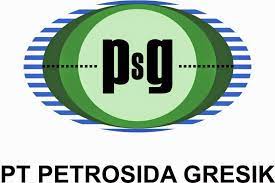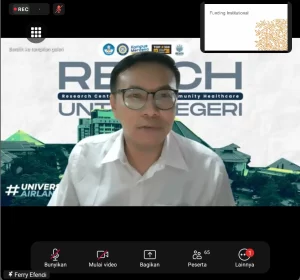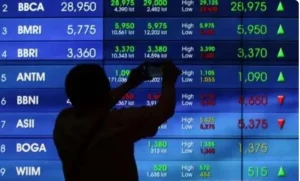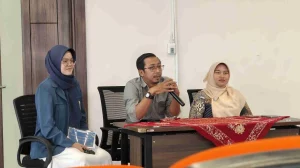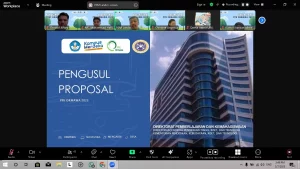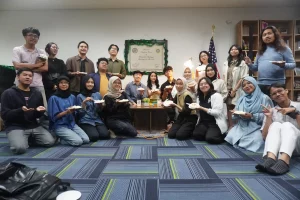UNAIR NEWS – Great problems always start from small things, such as garbage piles and flood in some cities during rainy season. All those problems were caused by ignorant community which does not throw out garbage properly, especially plastic waste from daily consumption.
This concern caused five students of UNAIR from Faculty of Public Health (FKM) to start a movement. They are Muafa Mahdi Ramadhan (2015), Muhammad Faris Rasyid (2015), Fenti Nur Aini Amallia (2015), Annisa Dwinda Shafira (2013) and Miftahol Hudhah (2013). One change they realized is plastic waste control by making a breakthrough called Arisan Sampah Plastik (ASPAL). This innovation was from a team which was in PKM-M and funded by Dikti.
“It is the same as the usual arisan (regular social gathering), but there’s innovation. If in the usual arisan we collect money, here we collect garbage,” said Muafa.
The five students chose Sidotopo area as the implementation of ASPAL program, because in the area there are many garbage piles and river polluted with plastic waste.
For the ASPAL program mechanism, the PKM team encouraged the locals to collect plastic waste around the area, then Muafa and her team will come and collect the plastic waste every two weeks.
In the end of the month, Muafa and her friends sell the plastic waste to the collector then the money from each person will be collected Rp 3000 every month for arisan. Therefore, Muafa and her team obliged the local residents to collect plastic waste worth Rp 3000 or 1.5 kg plastic waste every month. So besides getting money from the plastic waste collection, they also get some money from the monthly arisan.
The innovation was responded positively by the locals as there were many residents participating in ASPAL program. Their enthusiasm even showed from their willingness to give inputs to the PKM team from UNAIR. One of the inputs was a suggestion to include cardbox waste or metal waste in ASPAL program.
“We discussed about it, and finally we accepted the idea but we still prioritized the plastic,” said Muafa.
They hoped that through this ASPAL program, local community’s awareness will improve and give them understanding that plastic waste has economical value.
“We also hoped that this program applied continuously because it is a good program for the community itself, besides cleaning the environment, secondly, this activity can be a model for other area and be a pilot project for plastic waste management,” said Muafa during interview with UNAIR Radio. (*)
Author : Faridah Hari
Editor : Dilan Salsabila


